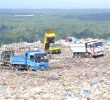MANILA — Philippine Permanent Representative to the United Nations Ambassador Hilario G. Davide, Jr. reported to the Department of Foreign Affairs that on 17 April 2007 the Philippines joined the mounting clamor for greater international attention on energy security and climate change, saying member-states of the United Nations must work together to attain the much needed consensus for speedy cooperation and action on these issues.
�There is an extreme urgency for international community-wide prioritization, including at regional and national levels, to address the challenges posed by energy security and climate change,� Ambassador Davide said in his statement during an open debate of the Security Council.
Aside from Ambassador Davide, those who spoke to call for greater international cooperation and action on energy security and climate change included United Nations Secretary General Ban Ki-Moon and representatives from at least 50 other member-states.
�The years 2007 to 2009 will be critical in testing the resolve of member-states to take bold and decisive steps to mitigate climate change,� Ambassador Davide said in the first statement he delivered before the Security Council since assuming his post as Manila�s envoy to the world body in February.
�As long as the approach involves all stakeholders � governments, parliaments, non-governmental and civil society organizations, the private sector, faith communities, and above all, the peoples themselves � and a determination and political will to make and fulfill commitments, we will be able to save mankind and make this planet a beautiful place to live in,� he said.
In his statement, Ambassador Davide underscored the importance the Philippines places on the issue of energy security and climate change. A delegate to the 1971 Constitutional Convention and the 1986 Constitutional Commission, Ambassador Davide cited the Philippine Constitution which expressly provides that the State shall protect and advance the right of the people to a balanced and healthful ecology in accord with the rhythm and harmony of nature.
A former Chief Justice, Ambassador Davide also cited a landmark Supreme Court decision (Oposa et al vs Secretary of Environment Fulgencio S. Factoran Jr.) that allowed children, on their own behalf and on behalf of children of succeeding generations, to sue the Government to enforce such constitutional right, thereby enunciating the doctrine of intergenerational responsibility and intergenerational justice.
“Mankind’s survival on our fragile planet faces a serious threat posed by our fast deteriorating climate,” the ambassador said. “In [that] landmark decision, the Supreme Court declared that unless something must be done now, mankind may inherit a parched earth incapable of sustaining life.”
Ambassador Davide also cited the creation in February by President Gloria Macapagal Arroyo of the Presidential Task Force on Climate Change, which is mandated to conduct a rapid assessment of the impact of climate change to ensure strict compliance with air emission standards, combat deforestation and apprehend violators.
In the regional level, the ambassador mentioned the Cebu Declaration on East Asian Energy Security adopted during the Second East Asian Summit on 15 January 2007 where the Philippines and the nine other member-states of the Association of Southeast Asian Nations (ASEAN), together with Australia, China, India, Japan, New Zealand and Korea, agreed to work closely to mitigate greenhouse gas emissions through effective policies and measures.
The Ambassador, who is presently chair of the ASEAN New York Committee, also referred to the Cebu Declaration on Sustainable Development issued by ASEAN environment ministers in November 2006 where they expressed their concern over the impact of climate change on ecosystems and reiterated their commitment to address global environment issues through national and regional cooperation.
He said climate change is also built in the ASEAN Plan of Action for Energy Cooperation which mandates the inclusion of environmental and sustainable development concerns in regional energy policy development.
Ambassador Davide also cited the 16th Ministerial Meeting of the Foreign Ministers of ASEAN and the European Union, where the Cebu Declaration on East Asian Energy Security was discussed. In that meeting, the ministers agreed to promote cooperation on climate change, energy security, sustainable energy and multilateral measures for stable, effective and transparent energy markets. (DFA) davaotoday.com









